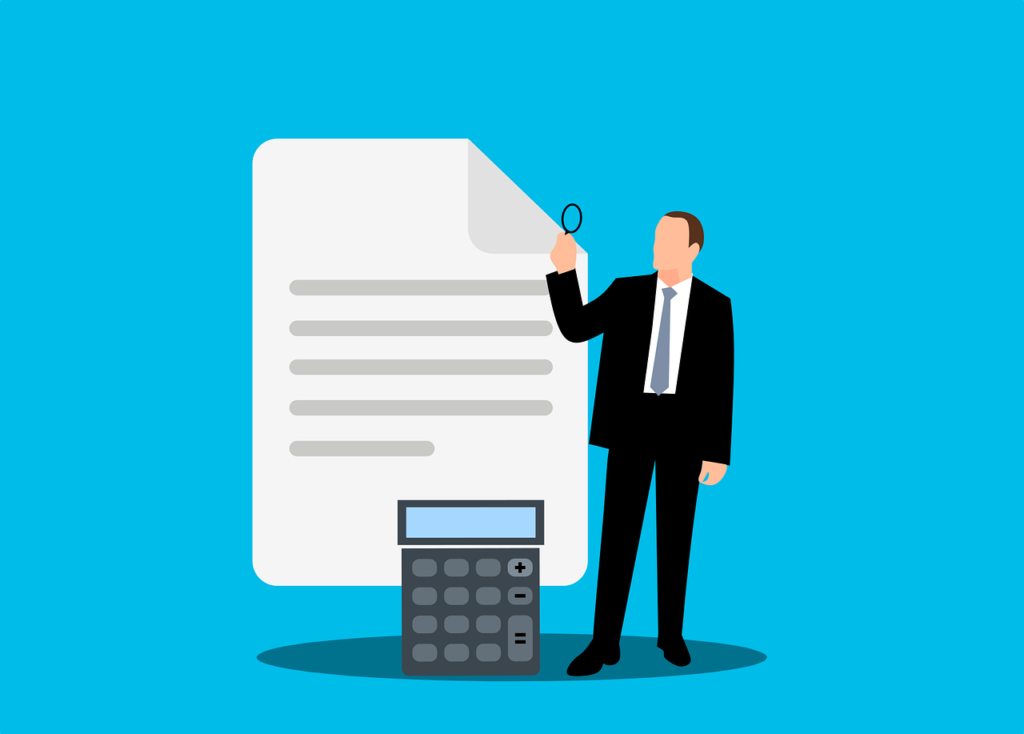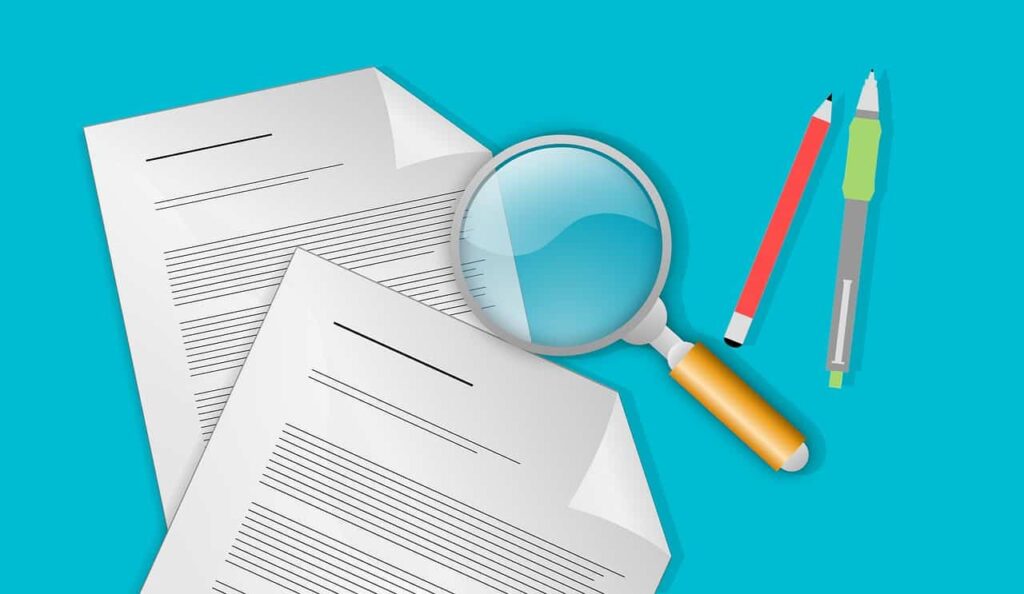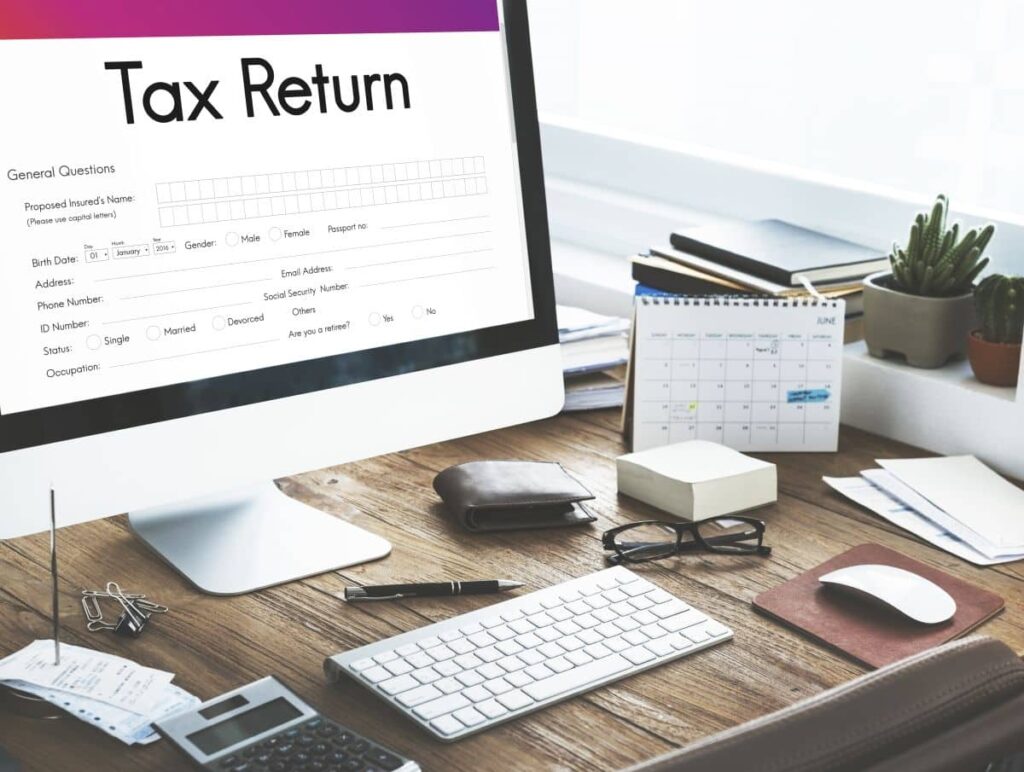How To Reduce Taxable Income
This article aims to provide the reader with useful information and should be informative overall. It offers advice on how to lower the amount of income that is subject to taxation in Australia. The most important point that we want to make clear is that this post is not about avoiding taxes or anything similar to that!
We will be discussing legal strategies that can reduce the amount of money that you are required to pay in annual taxes. These strategies involve making use of deductions and credits that you may not have been aware were available. If there is one piece of advice that we could give, it would be this: don’t just read this post; do something about it!
This blog post will be an excellent resource for you if you are seeking suggestions to lower the amount of income that is subject to taxation in Australia. We have produced a summary of the various strategies that our team members have used to lower the amount of revenue that is subject to taxation.
It’s possible that some people are unaware that they can deduct certain expenses from their taxable income and so lower their overall tax burden. When it comes to lowering one’s personal tax burden by making use of available deductions, the purpose of this article is to offer the reader some useful advice and pointers that they may put to good use. If you read the post and found any of the material to be helpful, please spread the word!
1. Work-Related Expenses That Can Be Deducted From Your Taxes
When looking at ways to lower taxable income, the first place to look is at the tax deductions that you are eligible for.
The Australian Tax Office (ATO) states that taxpayers are permitted to claim deductions for a variety of costs that are directly associated with their place of employment.
The following types of work-related expenses are eligible for reimbursement to employees:
- home office expenses;
- self-education expenses;
- tools, equipment and other assets; as well as
- vehicle and travel expenses
2. Donating to Charity: A Way to Decrease Your Taxable Income
Donating to a DRG organization is one approach to lower the amount of your income that is subject to taxation. A DRG, also known as a deductible gift recipient, is an organization or fund that is recognized by the ATO as being eligible to receive tax-deductible donations.
Depending on the kind of donation you made, you may be eligible for a tax deduction as follows:
- money: the contribution or gift is more than $2, and you’ve kept a record of it;
- property or shares: see the ATO for the special rules relating to this type of donation; and
- gifts under the Heritage and Cultural programs: see the particular circumstances where donations can be deductible
3. Tax Deductions for The Cost of Managing Your Tax Affairs
Did you know that you are permitted to claim a tax deduction for the costs of hiring an accountant to assist you with the preparation and filing of your tax return in addition to providing tax advice?
You have the right to make a claim for any tax-deductible expenses that you pay as a result of handling your tax affairs in general, such as for the following items:
- travel expenses incurred in seeking tax guidance;
- lawsuit expenses;
- obtaining a valuation for a tax-deductible property gift or donation;
- any interest that the ATO imposes
4. How To Decrease Your Taxable Income With Personal Contributions To Your Superannuation
If you are able to make a personal contribution to your superannuation fund on an annual basis, you may be eligible to claim a deduction for that amount on your taxes.
Note: you cannot deduct from your income that has already been taxed any payments to your super fund that were made by your employer and were made directly to your super fund.
In order to qualify for a tax deduction for personal payments to superannuation, your income must originate from one of the following sources:
- salaries, as well as wages;
- a matter of private concern;
- investments;
- pensions or allowances provided by the government;
- a foreign source;
- distributions from a trust or participation in a partnership.
However, bear in mind that claiming this as a tax-deductible expense will mean that the superannuation fund will pay the tax at 15% instead.
5. Salary Packaging
Salary packing is another name for salary sacrificing, which refers to the process of making arrangements with your employer to convert a portion of your salary into other advantages.
Therefore, in order for your company to pay for specific perks using the money that was deducted from your salary before taxes, you essentially agree to earn a lower income after taxes.
Some examples of the benefits include the following:
- car payments;
- loan repayments;
- the cost of tuition for your children;
- Fees for Home Phones
Example:
Joan brings in a yearly salary of one hundred thousand dollars.
She negotiates a deal with her company to package her salary in such a way that she will get a total of $84,000 in income, of which $15,000 will be paid towards the purchase of a car and $1,000 will be paid towards various other expenses.
As a result, Joan’s income that is subject to taxation drops to $85,000, which means that she would owe a lower amount of income tax.
6. Pre-Paid Expenses
By paying part of your tax-deductible expenses in advance, such as the interest on an investment loan, you can lower the amount of annual tax that you are responsible for paying.
If you are able to pay for some of your expenses in advance, not only will you not have to worry about paying them the next year, but you will also be able to deduct those expenses from your taxes for this year.
Be aware, however, that if you do choose to prepay some of the tax-deductible expenses you have, the total amount that you prepay should not be more than twelve months in advance.
7. Private Health Insurance Tax Offset
A private health insurance rebate was created by the Australian Taxation Office (ATO) as an incentive for taxpayers with middle- to high incomes to minimize their reliance on the public health system and to help the private healthcare industry become more self-sufficient.
The following are some of the requirements to meet in order to qualify for the tax offset:
- being an Australian citizen;
- having a taxable income of less than $140,000 as a single or $280,000 as a family;
- holding a complying health insurance policy; and
- having a Medicare card
In addition to this, if you do not have private healthcare insurance and have an annual income of more than $90,000 (singles) or $180,000 (families), you will be required to pay a Medicare Levy Surcharge of at least 1% of your income. This is in addition to the mandatory Medicare levy of 2.0 percent that the majority of taxpayers are required to pay.
Therefore, in order to avoid the 1% surcharge and take advantage of the tax refund, you might want to investigate the possibility of purchasing private healthcare insurance.
You can submit your request for the health insurance rebate in one of two ways:
- a discount on your premium; or
- claim it through your tax return
If you’re looking for ways how to reduce taxable income, we would suggest claiming it through your tax return.
8. Discretionary Trusts
If assets are moved into a family trust that has discretionary powers, the overall tax burden may be reduced.
The trustee has the authority to make decisions regarding the trust on their own accord, giving rise to the discretionary aspect of the arrangement. To put it another way, the trustee has the ability to use his or her judgment when it comes to deciding how the beneficiaries should split the income and the principal of the trust.
For instance, a trustee is empowered to make distributions to beneficiaries of the trust who fall under lower tax categories so that they can take advantage of those reduced tax brackets. Or, if there are any capital gains made by the trust, those gains could be given to the beneficiaries who have capital losses or to those who are eligible for a discount of fifty percent on their capital gains tax. There is a possibility that the result will be a reduced tax.
Ways on How to Reduce Taxable Income for Individuals in Australia

Even though having to pay taxes is unavoidable, the majority of people are interested in learning ways to lower their taxable income.
Did you know that by properly preparing your taxes you can reduce the amount of money you owe in taxes and end up with more cash in your pocket at the end of each fiscal year?
But what exactly does it mean to effectively plan one’s taxes? What are the most straightforward approaches to figuring out how to lower taxable income? Do you qualify for tax exemptions, deductions, or offsets?
This article will lead you through a few different approaches to lower the amount of income tax that you owe, despite the fact that there is no single approach to individual tax planning that is applicable to all situations.
Work-Related Expenses That Can Be Deducted From Your Taxes
When looking at ways to lower taxable income, the first place to look is at the tax deductions that you are eligible for.
The Australian Tax Office (ATO) states that taxpayers are permitted to claim deductions for a variety of costs that are directly associated with their place of employment.
The following types of work-related expenses are eligible for reimbursement to employees:
- Expenses for a home office;
- self-education expenses;
- supplies, machinery, and several other assets;
- costs associated with the vehicle and travel
How to Decrease Your Taxable Income Through Donations to Charities
Donating to a DRG organization is one approach to lower the amount of your income that is subject to taxation. A DRG, also known as a deductible gift recipient, is an organization or fund that is recognized by the ATO as being eligible to receive tax-deductible donations.
Depending on the kind of donation you made, you may be eligible for a tax deduction as follows:
- money: the donation or present is valued at more than two dollars, and you have maintained a record of it;
- See the Australian Taxation Office for the specific guidelines that apply to the donation of property or shares;
- Donations are given in the name of the Heritage and Cultural programs: check out the specific conditions under which donations are tax-deductible.
Tax Deductions for The Cost of Managing Your Tax Affairs
Did you know that if you engage an accountant to assist you with tax advice as well as the preparation and submission of your tax return, you are permitted to claim a tax deduction for the expenditures associated with hiring the accountant?
You are also eligible to make a claim for the tax-deductible expenses that you pay for the general administration of your tax affairs, such as for the following categories of costs:
- Expenses incurred for travel in connection with obtaining tax advice;
- the costs of litigation;
- obtaining a value for the purposes of making a tax-deductible contribution of property;
- any interest rate that is determined by the ATO.
Reducing Taxable Income Through Personal Super Contributions
If you are able to make a personal contribution to your superannuation fund on an annual basis, you might be eligible to claim a deduction for the amount of that payment.
Note that you cannot deduct from your income that has already been taxed any payments to your super fund that were made by your employer and were made directly to your super fund.
In order to qualify for a tax deduction for personal payments to superannuation, your income must originate from one of the following sources:
- salaries, as well as wages;
- a matter of private concern;
- investments;
- pensions or allowances provided by the government;
- a foreign source;
- trust distributions; or a partnership
However, keep in mind that if you claim this as a tax-deductible expense, the superannuation fund will be responsible for paying the tax at a rate of 15% instead of the normal rate of 15%.
Salary Packaging
Salary packing is another name for compensation sacrifice, which refers to the process of making arrangements with your company to convert a portion of your salary into other advantages.
Therefore, in order for your company to pay for specific perks using the money that was deducted from your salary before taxes, you essentially agree to earn a lower income after taxes.
Some examples of the benefits include the following:
- car payments;
- loan repayments;
- school fees for your children;
- and Home phone costs
Example:
Joan brings in a yearly salary of $ 100,000.
She negotiates a deal with her company to package her salary in such a way that she will get a total of $84,000 in income, of which $15,000 will be paid towards the purchase of a car and $1,000 will be paid towards various other expenses.
As a result, Joan’s income which is subject to taxation, drops to $85,000, which means that she will pay less tax overall.
Pre-Paid Expenses
By prepaying part of your tax-deductible expenses, such as the interest on an investment loan, for example, you can lower the amount of annual tax that you are responsible for paying.
If you are able to pay for some of your expenses in advance, not only will you not have to worry about paying them the next year, but you will also be able to deduct those expenses from your taxes for this year.
Be aware, however, that if you do choose to prepay some of the tax-deductible expenses you have, the total amount that you prepay should not be more than twelve months in advance.
Private Health Insurance Tax Offset
The Australian Taxation Office (ATO) came up with the idea of offering tax breaks to individuals who have private health insurance in order to encourage individuals with middle incomes and above to reduce their reliance on the public health system and to make the private healthcare industry more sustainable.
The following are some of the requirements to meet in order to qualify for the tax offset:
- having the citizenship of Australia;
- having a taxable income that is less than $80,000 for a household of four or $140,000 for a single person;
- owning a health insurance coverage that satisfies the requirements;
- having a card for Medicare and Medicaid.
In addition to this, if you do not have private health insurance and your annual income is more than $90,000 (singles) or $180,000 (families), you will be required to pay a Medicare Levy Surcharge that is at least 1% of your gross income. This is in addition to the mandatory Medicare levy of 2.0 percent that the majority of taxpayers are required to pay.
Therefore, in order to avoid the 1% surcharge and take advantage of the tax refund, you might want to investigate the possibility of purchasing private healthcare insurance.
You can submit your request for the health insurance rebate in one of two ways:
- a discount on your premium; or
- claim it through your tax return
If you’re looking for ways how to reduce taxable income, we would suggest claiming it through your tax return.
Trusts With Discretionary Assets
A potential reduction in overall tax liability may result from transferring assets into a discretionary family trust.
The trustee has the authority to make decisions regarding the trust on their own accord, giving rise to the discretionary aspect of the arrangement. To put it another way, the trustee has the ability to use his or her judgment in deciding how the income and the principal should be divided up among the beneficiaries.
For instance, a trustee is empowered to make distributions to beneficiaries of the trust who fall under lower tax categories so that they can take advantage of those reduced tax brackets. If the trust has any capital gains, those profits could be given to beneficiaries who have had capital losses or to beneficiaries who are eligible for a discount of fifty percent on their capital gains tax liability. There is a possibility that the result will be a reduced tax.
Make a Contribution to Your Super
This first method is perhaps the simplest and quickest way to reduce the amount of tax you have to pay. It is more accurate to refer to this practice as salary sacrificing or salary packaging, which means that you contribute a portion of your income before taxes into your retirement account.
The most important thing to do is to check that you have completed this step before you are subject to taxation. Therefore, the plan is for you to forego some of your pre-tax earnings before you receive them. By making a salary sacrifice, you can reduce the amount of tax that you pay on both your income and your contributions to your superannuation. The latter figure is far smaller, averaging 15 percent for most persons.
As a result, if you believe you will receive an additional bonus payment at the end of the fiscal year, you might consider contributing that sum to your retirement fund rather than spending it.
Be certain that you discuss the salary sacrifice with your employer before the certification of your bonus entitlement in order to avoid any confusion. This nuance is essential since salary sacrifice only applies to future income and not to revenue that you have already earned in the past.
Maintain Accurate Financial Records

You have been informed of this on multiple occasions by the ATO and right here on TaxReturn.com.au. It is absolutely necessary to store all of your tax data in a secure location. In this way, you will be able to quickly access them whenever it is necessary, particularly when you are claiming deductions.
Don’t miss this step even if it could appear to be very easy. When it comes to tax deductions, the ATO has grown more inquisitive than it ever has been before. The last thing you want to do is file a claim, only to find out later that you do not have any paperwork to show that you are entitled to the deduction.
Keeping an accurate record of the paperwork pertaining to your finances does not have to be difficult. Keeping track of your costs, downloading your statements, and organizing your receipts into a single folder should only take you approximately ten minutes per week.
Claim All Your Deductions
Each year, thousands of people in Australia throw away the opportunity to save money by failing to claim their tax deduction claims. This means that the ATO receives millions upon millions of dollars, which the citizens may actually receive in the form of tax refunds.
They don’t keep financial records, which is one of the reasons for this situation. They also believe that their expenditures are relatively inconsequential and that it is okay to forego taking deductions for them. However, the fact of the matter is that even though these are seemingly insignificant amounts, they can, over the course of a year, accumulate into significant financial gains.
Therefore, whenever you spend money on anything that is in any way connected to your job or the manner in which you generate your income, you should make sure to claim all of the deductions that are available to you. In order to reduce the amount of tax that you owe to the Australian government, the first thing that you need to do is make sure that you have claimed all of your deductions.
There is no need for concern if you are uncertain as to whether or not the item on which you have spent money can be reclaimed. Keep in mind that you can deduct it as long as it is relevant to work and that you have the receipt of the purchase, which will make the process of deducting it much simpler. We also provide you with guides that will tell you what you may claim and what you cannot claim based on the industry or profession that you work in.
Become More Charitable
If you’re in the mood to give to charity, act on your gut impulse. You are not only assisting organizations in their efforts to make the world a better place, but you are also reducing the amount of money that you will owe in taxes. Any and all contributions you make are eligible for a tax deduction, provided that they satisfy the following requirements:
- You have donated to a registered charity
- You have given more than two dollars
- You got the receipt from the organisation to file it away for the next tax season.
Don’t forget to add any charitable receipts that you have and enter them into the “charity donations” area of your tax return when it comes time to file your taxes. This section may be found in your tax return.
It is important to remember before you get too enthusiastic about getting a tax refund from your donations that you will not receive any money back in the form of a tax refund for your contributions. Instead, you will receive a reduction in the amount of tax you owe as a result of the charitable donations you have made through the deductions that are made from your taxable income. Nevertheless, you will be rewarded monetarily for your kind actions. It’s a win for both sides.
Completely repay your mortgage
Did you know that you can reduce the amount of tax you owe by using an account that offsets your mortgage? If you already have a home loan, it will work for you. If you have a mortgage offset account, you have the ability to reduce the amount of interest that you pay on your home loan that is not tax-deductible by taking advantage of the interest that is earned on taxable earnings that are deposited.
Because of this system, taxpayers in Australia are able to open savings accounts with their respective lenders. The main distinction is that you will not be responsible for paying interest on the complete amount of the loan. Instead, the interest on the loan will be paid for by you, and any deductions will be taken out of the money in your savings account.
It is to your advantage to pay down your mortgage as quickly as possible because you will avoid paying taxes on the money that you have just spent. This overpayment is even available to be withdrawn through the facility provided by your account for doing so. It will come in handy in the event that you require additional funds in the future.
In the meantime, if you have made any kind of investment or purchased property, this can have an effect on your taxes, either positively or negatively. When you decide to invest your money, you should do so only after carefully weighing the potential gains against the risks involved.
Even if you believe you are an experienced investor, it is imperative that you consult with a financial planner at some point. Your investment ought to be able to create revenue for you both now and in the years to come. You should not invest or refrain from investing for the sole purpose of reducing the amount of money you owe in taxes.
Find out which parts of your income are exempt from taxation and which parts aren’t
The Australian Taxation Office (ATO) has established that some categories of earnings do not have to be reported or taxed in any way. Because of this, you need to make certain that the aforementioned forms of income are not shown on your tax return.
If you make this mistake, the agency will, unfortunately, take into account the non-taxable income when assessing tax losses from earlier income years. You are required to take a deduction for contributions that are not taxable and make appropriate adjustments to the taxable income of your dependents. The following are some examples of gains that are exempt from taxation:
- Australian Government pensions like Centrelink’s disability support pensions for people who are younger than the pension age
- Payments and allowances from the Government, including child care subsidy
- Payments for the Federal Police or Australian Defence Force
- Specific awards, grants, and scholarships
- Education payments from the Government like allowances for students who are 16 years old and younger




















